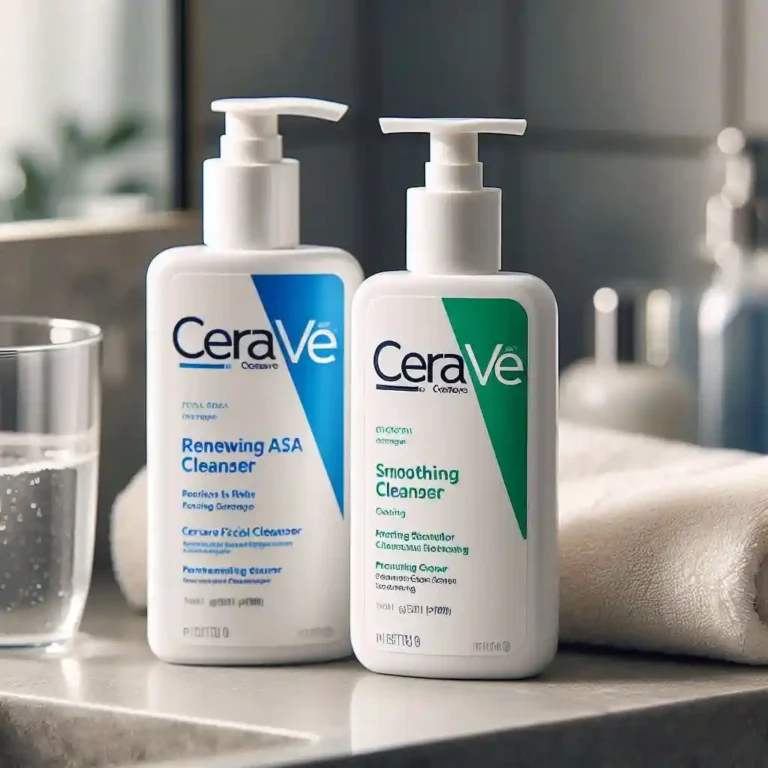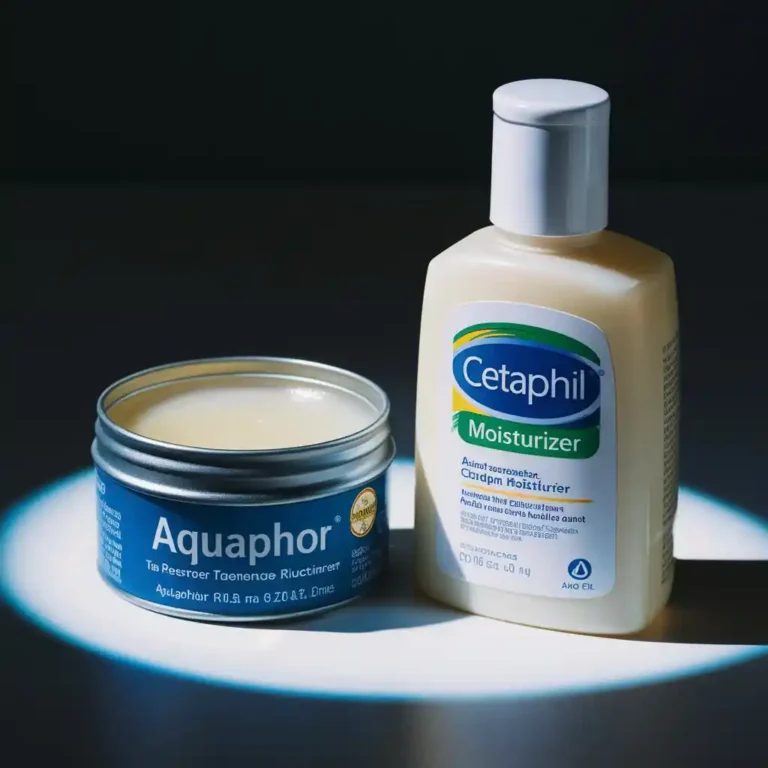La Roche-Posay Effaclar Duo vs Adapalene: Which One is Right for You?
La Roche-Posay Effaclar Duo vs Adapalene: Two popular options for acne treatment are La Roche-Posay Effaclar Duo and Adapalene. Both products have gained a loyal following, but which one is right for you?
In this article, we’ll delve into the details of each product, comparing their ingredients, benefits, and drawbacks to help you make an informed decision.
La Roche-Posay Effaclar Duo vs Adapalene: A Quick Comparison

| Characteristic | La Roche-Posay Effaclar Duo | Adapalene |
|---|---|---|
| Active Ingredients | Salicylic Acid (0.1%), Benzoyl Peroxide (2%) | Adapalene (0.1%) |
| Indications | Mild to moderate acne, including blackheads and whiteheads | Mild to moderate acne, including blackheads and whiteheads |
| Mechanism of Action | Exfoliates skin, unclogs pores, kills bacteria | Unclogs pores, reduces inflammation, prevents future breakouts |
| Side Effects | Dryness, redness, irritation, burning | Dryness, redness, irritation, burning |
| Precautions | Avoid using on broken or irritated skin | Avoid using on broken or irritated skin |
| Contraindications | Pregnancy, breastfeeding | Pregnancy, breastfeeding |
| Price | 20-30 | 15-25 |
| Availability | Over-the-counter (OTC) | Prescription-only |
What is La Roche-Posay Effaclar Duo?
La Roche-Posay Effaclar Duo is a topical acne treatment cream that is designed to help reduce the appearance of acne and prevent future breakouts. It is a popular product among dermatologists and skincare professionals, and is often recommended for its ability to effectively treat mild to moderate acne.
Here are some key features and benefits of La Roche-Posay Effaclar Duo:
- Contains 0.1% salicylic acid and 2% benzoyl peroxide
- Helps to unclog pores and reduce inflammation
- Can help to reduce the appearance of acne scars and hyperpigmentation
- Gentle enough for daily use, even on sensitive skin
- Non-comedogenic and hypoallergenic, making it suitable for acne-prone skin
- Can be used on the face, chest, and back
What is Adapalene?
Adapalene is a topical retinoid cream or gel that is used to treat mild to moderate acne, including blackheads and whiteheads. It is a derivative of vitamin A and is often used to treat acne-prone skin.
Adapalene works by:
- Unclogging pores and reducing the appearance of blackheads and whiteheads
- Reducing inflammation and reducing the size and redness of acne lesions
- Preventing future breakouts by reducing the formation of new acne-causing bacteria
- Improving the overall texture and tone of the skin
Key Ingredients: La Roche-Posay Effaclar Duo vs Adapalene

La Roche-Posay Effaclar Duo
- 0.1% Salicylic Acid: A beta hydroxy acid that helps to exfoliate the skin, unclog pores, and reduce inflammation.
- 2% Benzoyl Peroxide: An antibacterial agent that helps to kill acne-causing bacteria and reduce inflammation.
Adapalene
- 0.1% Adapalene: A retinoid derivative that helps to unclog pores, reduce inflammation, and prevent future breakouts.
How Do They Work?
La Roche-Posay Effaclar Duo
- Salicylic Acid: Exfoliates the skin, unclogs pores, and reduces inflammation by:
- Dissolving dead skin cells and other debris that can clog pores
- Helping to break down keratin, a protein that can contribute to acne
- Reducing inflammation and swelling associated with acne
- Benzoyl Peroxide: Kills acne-causing bacteria, reduces inflammation, and helps to prevent future breakouts by:
- Inhibiting the growth of Propionibacterium acnes (P. acnes), a bacteria that can contribute to acne
- Reducing inflammation and swelling associated with acne
- Helping to prevent future breakouts by reducing the number of acne-causing bacteria on the skin
Adapalene
- Adapalene: Unclogs pores, reduces inflammation, and prevents future breakouts by:
- Breaking down keratin, a protein that can contribute to acne
- Reducing inflammation and swelling associated with acne
- Preventing future breakouts by reducing the formation of new acne-causing bacteria
- Improving the overall texture and tone of the skin
Benefits and Drawbacks: La Roche-Posay Effaclar Duo vs Adapalene

La Roche-Posay Effaclar Duo
Benefits:
- Effective in treating mild to moderate acne, including blackheads and whiteheads
- Gentle and non-irritating, making it suitable for sensitive skin
- Can be used on the face, chest, and back
- Can help to reduce the appearance of acne scars and hyperpigmentation
- Can help to prevent future breakouts by reducing the number of acne-causing bacteria on the skin
Drawbacks:
- May cause dryness, redness, and irritation in some individuals
- May not be as effective for treating severe acne or acne that is resistant to treatment
- May not be suitable for individuals with sensitive skin or allergies to certain ingredients
Adapalene
Benefits:
- Effective in treating mild to moderate acne, including blackheads and whiteheads
- Can help to reduce the appearance of acne scars and hyperpigmentation
- Can help to prevent future breakouts by reducing the formation of new acne-causing bacteria
- Can improve the overall texture and tone of the skin
Drawbacks:
- May cause dryness, redness, and irritation in some individuals
- May not be as effective for treating severe acne or acne that is resistant to treatment
- May not be suitable for individuals with sensitive skin or allergies to certain ingredients
Which One is Right for You?
Skin Type:
- If you have sensitive skin, La Roche-Posay Effaclar Duo may be a better option due to its gentle and non-irritating formula.
- If you have normal to oily skin, Adapalene may be a better option due to its ability to control oil production and reduce acne.
Acne Severity:
- If you have mild to moderate acne, both products may be effective. However, if you have severe acne, you may want to consider a stronger treatment option.
- If you have acne that is resistant to treatment, you may want to consider a combination therapy that includes both La Roche-Posay Effaclar Duo and Adapalene.
Personal Preferences:
- If you prefer a gentle and non-irritating formula, La Roche-Posay Effaclar Duo may be a better option.
- If you prefer a product that can help to prevent future breakouts and improve the overall texture and tone of the skin, Adapalene may be a better option.
Side Effects and Precautions: La Roche-Posay Effaclar Duo vs Adapalene
La Roche-Posay Effaclar Duo
- Common side effects:
- Dryness
- Redness
- Irritation
- Burning
- Stinging
- Rare but serious side effects:
- Allergic reactions
- Skin infections
- Increased sensitivity to the sun
- Precautions:
- Avoid using the product on broken or irritated skin
- Avoid using the product on sensitive areas of the skin
- Avoid using the product on the eyes or mouth
- Avoid using the product on children under the age of 12
Adapalene
- Common side effects:
- Dryness
- Redness
- Irritation
- Burning
- Stinging
- Rare but serious side effects:
- Allergic reactions
- Skin infections
- Increased sensitivity to the sun
- Precautions:
- Avoid using the product on broken or irritated skin
- Avoid using the product on sensitive areas of the skin
- Avoid using the product on the eyes or mouth
- Avoid using the product on children under the age of 12
Conclusion: La Roche-Posay Effaclar Duo vs Adapalene
Similarities:
- Both products are effective in treating mild to moderate acne, including blackheads and whiteheads.
- Both products have similar side effects and precautions, including dryness, redness, irritation, burning, and stinging.
- Both products have rare but serious side effects, including allergic reactions, skin infections, and increased sensitivity to the sun.
Differences:
- La Roche-Posay Effaclar Duo contains salicylic acid and benzoyl peroxide, while Adapalene contains adapalene.
- La Roche-Posay Effaclar Duo is specifically designed to treat mild to moderate acne, including blackheads and whiteheads, while Adapalene is designed to treat mild to moderate acne, including blackheads and whiteheads, as well as to prevent future breakouts.
- La Roche-Posay Effaclar Duo may be more effective for treating acne on the face, chest, and back, while Adapalene may be more effective for treating acne on the face and neck.
FAQs
Q: What is La Roche-Posay Effaclar Duo?
A: La Roche-Posay Effaclar Duo is a topical acne treatment that contains salicylic acid and benzoyl peroxide. It is designed to treat mild to moderate acne, including blackheads and whiteheads.
Q: What is Adapalene?
A: Adapalene is a topical retinoid that is used to treat mild to moderate acne, including blackheads and whiteheads. It is also used to prevent future breakouts and improve the overall texture and tone of the skin.
Q: How do I use La Roche-Posay Effaclar Duo?
A: Apply a thin layer of La Roche-Posay Effaclar Duo to the affected area 1-2 times a day. Massage gently into the skin until fully absorbed.
Q: How do I use Adapalene?
A: Apply a thin layer of Adapalene to the affected area 1-2 times a day. Massage gently into the skin until fully absorbed.
Q: Can I use La Roche-Posay Effaclar Duo and Adapalene together?
A: No, it is not recommended to use La Roche-Posay Effaclar Duo and Adapalene together. Both products contain active ingredients that can cause dryness, redness, and irritation. Using both products together may increase the risk of these side effects.
Q: Can I use La Roche-Posay Effaclar Duo and Adapalene on sensitive skin?
A: Yes, both La Roche-Posay Effaclar Duo and Adapalene are generally well-tolerated and can be used on sensitive skin. However, it is always a good idea to do a patch test on a small area of skin before using a new product.
Q: Can I use La Roche-Posay Effaclar Duo and Adapalene during pregnancy or breastfeeding?
A: It is not recommended to use La Roche-Posay Effaclar Duo or Adapalene during pregnancy or breastfeeding without consulting a healthcare provider. Both products contain active ingredients that can pass through the placenta and may affect the developing fetus.

Hi, I’m Rachel Powell, the founder and creative mind behind FashionBeautyLooks.com. With a passion for all things fashion and beauty, I’ve dedicated my career to helping others discover their unique style and enhance their natural beauty.







